15/06/2022
In this countdown to DigitalES Summit 2022, Innovaspain.com publishes this week a report on the opportunity to generate new competitive advantages through technology. Source: 10 key innovations for Spain’s strategic autonomy, according to DigitalES (innovaspain.com)
10 key innovations for Spain’s strategic autonomy, according to DigitalES
The association highlights areas and innovations in which Spain has a competitive advantage, and invites to continue the debate at the DigitalES Summit 2022 congress.
The world as we know it is about to change. In this race for relevance in the emerging new globalization, where technology and innovation play a decisive role, Spain has a series of strengths that should be protected and promoted.
In this context, DigitalES (Spanish Association for Digitalization) has asked itself some questions: Why, if Spain is a leading country in connectivity, is it not also a leading country in digitalization, R&D&I and productivity? In addition to telecommunications networks, what other differentiating resources do we have and how can digital transformation maximize their potential?
«From DigitalES we wanted to investigate which technological areas represent a greater competitive advantage for Spain and, therefore, can generate a greater short-term impact on the competitiveness of our country,» explains Víctor Calvo-Sotelo, CEO of DigitalES. As a result of this exercise, the following areas were identified in collaboration with the companies associated with this employer’s association:
1. Opto-electronics (integrated photonics)
Spain has the opportunity to cover new market opportunities with the integration of photonics in electronics. «Opto-electronics can offer both Spain and Europe a dominant position, unlocking the semiconductor crisis and boosting the technology sectors,» says Adolfo Lerín, R&D electronic project leader at Capgemini.
Spain offers microelectronics solutions that are at the forefront worldwide and are also competitive. Well-established groups such as the Polytechnic University of Catalonia and the National Microelectronics Center (CNM), among others, have manufacturing processes. This makes it possible to prototype this type of solutions very quickly and reach the industry in record time. All this, in turn, under the impetus of the PERTE for semiconductors recently approved by the Government.
Augmented reality
Augmented reality develops interactive experiences, where sensory information of different types is superimposed on a physical environment, enriching the experience in the real environment. According to Ericsson estimates, this technology could represent a 600 million euro opportunity for telecommunications operators in Spain alone.
We found very promising use cases for augmented reality in the tourism, industrial or educational sectors. Spanish talent in this field is well regarded internationally, which is a valuable asset. However, DigitalES estimates that there are 2,200 vacancies in this field, due to the shortage of professionals in certain ICT specialties that Spain suffers from.
3. Intelligent genomics
Spain’s healthcare system is considered one of the best in the world. It is no coincidence that Spain is also a leading country in certain niches of biomedical research such as «intelligent genomics». This is genomics «enriched» with Artificial Intelligence, to help determine the underlying causes of clinical changes and enable more personalized and efficient treatments.
«The industry faces several challenges, such as biases in the data or the loss of accuracy of algorithms when moving from experiments in the lab to applying them on real patient data in hospitals,» explains Diana de la Iglesia, director of Business Development for Genomics, Analytics and Artificial Intelligence Solutions at Fujitsu. Spain has the opportunity to continue to be a benchmark country in healthcare, providing solutions to these major challenges, developing comprehensive genomic analysis systems, implementing high-capacity computing infrastructures and, in short, leading the transition towards the preventive and personalized medicine of the future.
4. Telemedicine
Spain is currently a leading country in telemedicine services: more and more Spanish patients are using this type of tele-consultation, well above the adoption of other countries such as France, Italy and Germany. In addition to the obvious benefit to patients’ quality of life, «it has a direct impact on the reduction of waiting lists, the reduction of consultation times and the optimization of all healthcare system resources,» notes Nicolás Chercasky, VP Lifesciences Studio at Globant.
Telemedicine is also a way to close gaps and provide more equitable healthcare that also reaches the rural world.
5. Supercomputing
One of the next technological revolutions will come from quantum computing, which, far from cannibalizing supercomputing, will complement and boost it. Spain has a network of 14 supercomputing nodes, including the MareNostrum supercomputer, manufactured by IBM and located at the Barcelona Supercomputing Center (BSC).
The collaboration between IBM and the BSC dates back to April 2005 and has allowed Spain to become one of the world powers in this area and to facilitate social and economic progress through the use of this type of technology.
6. Cloud
The cloud has probably been the technology modality that has spread the fastest, due to the agility and ease of access to technology that it provides to companies. «Under a cloud model, customers are no longer buying technology but a business solution,» notes Noel Bravo, director of Cloud Services and Alliances at Kyndryl.
And, in this context, Spain is becoming a hub where all the major technology corporations -AWS, Globant, Google, HP, IBM, Kyndryl, Microsoft or VMWare, and recently also Vodafone in Malaga, among others-, are investing to turn the country into an innovation hub for the whole of Europe. Again, the first major attraction for these companies is talent.
7. Precision agriculture
If there is a sector of activity in which Spain is destined to be a world leader, it is agriculture. We have the opportunity to be leaders in emerging precision agriculture and demonstrate to the world how to apply agro-tech innovations to create healthier and more prosperous societies. The idea is to take advantage of the competitive advantages we have in Spain, such as arable land and climate, and «irrigate» them with technology to make the first sector more competitive and, at the same time, more sustainable.
Geographic information systems, satellite image processing, dronics, IoT, robotics and artificial intelligence are some of the technologies that make this disruption of agriculture possible. As Ángel Teso, head of NTT DATA’s Cities and Agrotech areas, explains, this brings with it significant efficiency improvements in the use of water, fertilizers, phytosanitary products, energy and other resources, as well as in crop management, which ultimately leads to increased production. «Precision agriculture will make it possible to feed humanity in the coming years. By 2050, there will be 9.5 billion people on the planet,» he says.
8. Smart cities
Safer cities, with less traffic jams, more effective urban maintenance services, and more efficient in energy and water consumption. These are known as «smart cities».
In the opinion of Javier Ridruejo Pérez, secretary general of the Spanish Network of Smart Cities, Spanish cities are an international benchmark «both in platforms and in certain verticals, such as tourism, data analytics or IoT, as well as in the management of public resources, such as water or waste». The great challenge is to turn Spanish cities into the models that the rest of the world looks to, for which Jorge Caja, CEO of Tower, urges to accelerate the training of technical staff of local administrations, standardization and the implementation of robust use cases from the point of view of security.
… And two extra technologies
9. 5G
5G or, more broadly, next-generation ultrafast networks, cannot be missing from this review. These can act as a spur for a stronger and more competitive Spain in the digital era, providing a new impetus to the technological areas mentioned above.
Calvo-Sotelo stresses that the fixed connectivity network is an unbeatable base on which to deploy 5G, and recalls the «decisive influence» that the regulatory framework has on the speed with which our networks and connectivity infrastructures can be deployed.
10. Green algorithms
Finally, the Spanish Association for Digitalization has recently proposed formulas to turn Spain into the international model for the development of sustainable Artificial Intelligence. Within this we find the so-called «green algorithms», the result of a conscious effort to optimize the energy consumption of the massive data processing activity.
Spain has the opportunity to lead the global transition towards «Green AI», proposing schemes and technical models of action to guide organizations responsible for the development, implementation and use of algorithms. Anticipating international climate change containment targets through innovation and digitalization will be the key for Spain to become a leading country in the coming decades.
DigitalES Summit 2022
This list will be the starting point for a constructive conversation at the DigitalES Summit 2022, which will be held on July 6, 7 and 8 in hybrid format. Among other issues, the expert speakers will discuss current technology trends and the type of regulation that can drive – without constraining – innovation.
More information: www.digitalessummit.es











